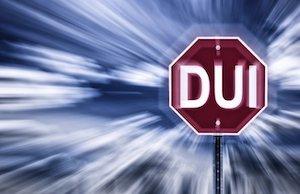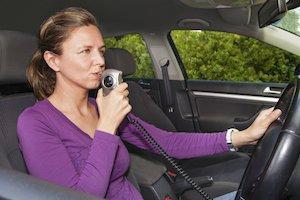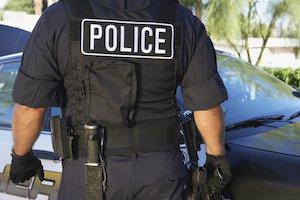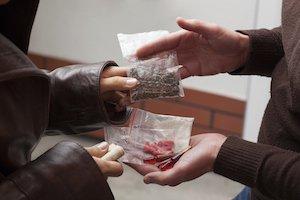Recent Blog Posts
Do I Have To Take a DUI Alcohol Test?
 If you are pulled over and accused of DUI in Connecticut, you should know the state’s implied consent law. The law mandates that you consent to a urine, blood, or breath test if you have been arrested for a DUI. If the officer arresting you has probable cause, then you give your consent to having this test done.
If you are pulled over and accused of DUI in Connecticut, you should know the state’s implied consent law. The law mandates that you consent to a urine, blood, or breath test if you have been arrested for a DUI. If the officer arresting you has probable cause, then you give your consent to having this test done.
The officer chooses which test is to be done, but it must be given within two hours of when you were actually driving a vehicle. Without penalty, you can refuse the blood test if you wish, meaning that the officer can choose from one of the remaining test. The officer must also inform you of your constitutional rights when you are arrested and explain that your license may be suspended if you refuse to take a test.
If you refuse to take the test, that information can be used against you in court. An officer doesn’t have the responsibility to explain that you can contact your attorney prior to taking a test, which you might want to consider doing so that you are aware of all your rights at that time.
The Consequences of a DUI Conviction
 There are serious repercussions for those convicted of a DUI in Connecticut. Fines may include prison terms, fines, and license suspensions. Under state law, offenders aged 21 or older will have a minimum license suspension of 45 days. If you have been charged with driving under the influence, you need to contact an attorney as soon as possible.
There are serious repercussions for those convicted of a DUI in Connecticut. Fines may include prison terms, fines, and license suspensions. Under state law, offenders aged 21 or older will have a minimum license suspension of 45 days. If you have been charged with driving under the influence, you need to contact an attorney as soon as possible.
First time offenders may be eligible to drive after their suspension period ends, but only with an ignition interlock-equipped vehicle. First time offenders will drive with an ignition interlock device for a period of one year, and second time offenders will drive with an ignition interlock device for three years. Second time offenders are only allowed to drive to school, work, an alcohol or drug treatment program, or the ignition interlock service center in the first year of the interlock period.
Connecticut Authorities Target Child Pornography Ring
 An East Haven man was among 18 suspects arrested in a statewide targeted child pornography investigation. Detectives working for the Connecticut State Police Computer Crimes unit combined forces with the State Police Bureau of Criminal Investigations and Sex Offenders Unit to conduct the arrest warrant sweep on March 27th.
An East Haven man was among 18 suspects arrested in a statewide targeted child pornography investigation. Detectives working for the Connecticut State Police Computer Crimes unit combined forces with the State Police Bureau of Criminal Investigations and Sex Offenders Unit to conduct the arrest warrant sweep on March 27th.
For the 18 arrested individuals, the state has the responsibility to prove several elements beyond a reasonable doubt in order to find the defendants guilty of their charges:
- Possession is the first component of a child pornography charge, which includes any picture, videotape, computer-generated image, or other visual depiction of a person under the age of 16;
- The state must demonstrate that the defendant knowingly possessed child pornography;
Connecticut Legislators Investigating Police Misconduct
 Connecticut legislators are evaluating new police department requirements for the handling of officer misconduct complaints. A bill was approved in the Judiciary Committee last week in response to increased reports across the state. If you are facing criminal charges in a case where police misconduct is an issue, you need to seek out an attorney.
Connecticut legislators are evaluating new police department requirements for the handling of officer misconduct complaints. A bill was approved in the Judiciary Committee last week in response to increased reports across the state. If you are facing criminal charges in a case where police misconduct is an issue, you need to seek out an attorney.
East Haven police in particular were singled out for high numbers of racial profiling complaints. Previous complaints led to a Justice Department investigation in 2009 which uncovered biased policing and discrimination behavior in that police department. Specific profiling behavior targeted Latinos, sending four officers to prison and demanding improvements.
Better policing standards are critical, according to Andrew Schneider, American Civil Liberties Union executive director. Schneider says that the Connecticut ACLU has received numerous complaints about police misconduct in the past year and that not enough improvements have been made to protect citizens or accused criminals.
The Connecticut Anti-Bullying Law
 The national media focus on bullying in schools has led to legislation across the country, and the same holds true in Connecticut, where a law was signed in 2011. If your child has been charged with a crime related to bullying, you need to contact an attorney immediately.
The national media focus on bullying in schools has led to legislation across the country, and the same holds true in Connecticut, where a law was signed in 2011. If your child has been charged with a crime related to bullying, you need to contact an attorney immediately.
In Connecticut, 25 percent of high school students report being bullied on school property. Across America, more than 900,000 students report being bullied online. In Connecticut, there are specific rules about how a school has to handle a bullying investigation. School staff must have streamlined procedures for bullying reporting and it must be investigated when any claim is made.
Since more and more schools are adopting zero-tolerance policies on any allegation of bullying, children that are accused may face immediate school-related consequences in addition to criminal charges. A bullying accusation can continue to follow a child for years.
Marijuana Possession Punishments in Connecticut
 Whether you already have a criminal record or whether a marijuana drug possession charge is your first offense, you should take your case seriously and hire a criminal attorney. In Connecticut, there are several different types of charges you might be facing if you are caught with marijuana. The only individuals approved for marijuana use in Connecticut are those who carry a medical marijuana certificate.
Whether you already have a criminal record or whether a marijuana drug possession charge is your first offense, you should take your case seriously and hire a criminal attorney. In Connecticut, there are several different types of charges you might be facing if you are caught with marijuana. The only individuals approved for marijuana use in Connecticut are those who carry a medical marijuana certificate.
If you are arrested with less than 4 ounces of marijuana, you could be facing a fine of $1,000 and you could even be sentenced to up to a year in jail. Any case involving higher quantities of marijuana can have more severe consequences.
Even young adults can face penalties if caught with marijuana: for possession of less than 5 ounces or possession of drug paraphernalia related to less than 5 ounces of marijuana, a juvenile 16 years old or younger will have their license suspended for at least 60 days, or in the case they don't yet have a license, receiving it can be delayed up to 150 days. Youth aged 17-21 will face fines and driver’s license suspension as well. Juveniles may also need to attend drug counseling and complete a certain number of community service hours.
Man Charged For Sexting With Teen
 Henry Moy, 23, of Norwalk was charged in late January by Stamford police with “risk of injury to a child, use of computer to entice a child and employing a minor in an obscene performance,” according to New Canaan News Online. Moy allegedly enticed a young girl to “take lewd photos of herself and send them to him,” police told New Canaan News, while he was working part time as a lifeguard in a New Canaan YMCA. Moy also works as a trainer at a Stamford gym. He was “released after posting a $100,000 court appearance bond.” He is expected to appear in court later in February in connection with the allegations.
Henry Moy, 23, of Norwalk was charged in late January by Stamford police with “risk of injury to a child, use of computer to entice a child and employing a minor in an obscene performance,” according to New Canaan News Online. Moy allegedly enticed a young girl to “take lewd photos of herself and send them to him,” police told New Canaan News, while he was working part time as a lifeguard in a New Canaan YMCA. Moy also works as a trainer at a Stamford gym. He was “released after posting a $100,000 court appearance bond.” He is expected to appear in court later in February in connection with the allegations.
Lt. Dedrich Hohn told the New Canaan News that the girl’s father made the initial complaint to police, after finding his daughter’s cellphone “and saw sexually charged texts and videos that she allegedly sent to her gym coach.” Lt. Hohn said that the ones her father found were only a fraction of the hundreds of texts the girl had sent to Moy. Moy was called into the station on a ruse and police subsequently confiscated his cellphone. “If police find any of those pictures,” New Canaan News reports, “Moy can be additionally charged with possession of child pornography.” The detective said that in the texts it is readily apparent that Moy was encouraging the young girl to send him the explicit photos and videos.
Connecticut Senator Raises Awareness of Phone Fraud
 This past February, a number of Connecticut residents reported being victimized by a new form of phone fraud. Residents received a call and were informed that a family member had been involved in an accident. They were then asked to fork over money or risk their family member being held hostage. Connecticut Senator Chris Murphy alerted the FBI about capturing data from these alleged phone calls in an effort to reduce fraudulent activity.
This past February, a number of Connecticut residents reported being victimized by a new form of phone fraud. Residents received a call and were informed that a family member had been involved in an accident. They were then asked to fork over money or risk their family member being held hostage. Connecticut Senator Chris Murphy alerted the FBI about capturing data from these alleged phone calls in an effort to reduce fraudulent activity.
If caught, individuals involved in this type of activity could be accused of phone and telemarketing fraud, which is any scheme where a criminal communicates with a victim over the telephone. More often than not, fraudulent phone calls target the poor, immigrants, and elderly individuals. Also not all phone fraud involves demands for ransom.
Connecticut Men Facing Drug Charges Flee
 Two Connecticut men are facing criminal charges after they fled from police during a vehicle stop in Poughkeepsie last week. At the time of the stop, passenger Justin L. Skipwith left the scene on foot, to be stopped a block away by taser. While police were going after him, the vehicle driver left the premises in his car.
Two Connecticut men are facing criminal charges after they fled from police during a vehicle stop in Poughkeepsie last week. At the time of the stop, passenger Justin L. Skipwith left the scene on foot, to be stopped a block away by taser. While police were going after him, the vehicle driver left the premises in his car.
The vehicle was stopped at the intersection of Henmond Boulevard and Route 55, where police discovered a .38 caliber weapon, marijuana, and possible phencyclidine (also known as PCP). After this discovery, police charged Skip with with second degree criminal weapon possession, two counts of seventh degree criminal controlled substance possession, fourth degree possession of marijuana, one count of resisting arrest and fourth degree criminal stolen property possession.
The vehicle driver was also charged with criminal possession of a controlled substance, and non-felony violations of state traffic and vehicle laws.
Marijuana Possession Punishments in Connecticut
 Whether you already have a criminal record, or a marijuana drug possession charge is your first offense, you should take your case seriously and hire a criminal attorney. In Connecticut, there are several different types of charges you might be facing if you are caught with marijuana and you are not protected under Connecticut medical marijuana laws.
Whether you already have a criminal record, or a marijuana drug possession charge is your first offense, you should take your case seriously and hire a criminal attorney. In Connecticut, there are several different types of charges you might be facing if you are caught with marijuana and you are not protected under Connecticut medical marijuana laws.
If you are arrested with less than 4 ounces of marijuana, you could be facing a fine of $1,000 and, you could be sentenced to up to a year in jail. Any case involving higher quantities of marijuana can have more severe consequences.
Even young adults can face penalties if caught with marijuana: for possession of less than 5 ounces or possession of drug paraphernalia related to less than 5 ounces of marijuana, a juvenile under the age of 16 will have their license suspended for at least 60 days. Youth aged 17-21 will face fines and driver’s license suspension as well. Juveniles may also need to attend drug counseling and complete a certain number of community service hours.







